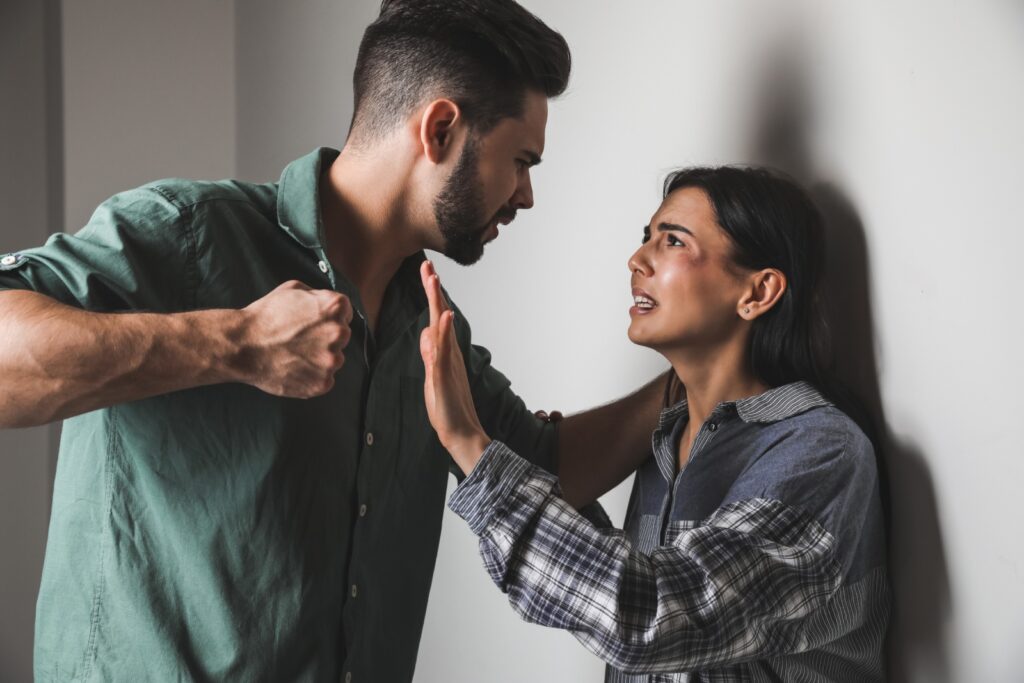Defense Strategies for False Domestic Violence Claims: Protect Your Rights and Reputation
False domestic violence claims can shatter lives and reputations, leaving the accused in a whirlwind of emotional and legal turmoil. In a world where allegations often lead to immediate social and legal consequences, understanding effective defense strategies is crucial. These strategies not only help protect the innocent but also ensure that justice prevails in a fair and balanced manner.
Navigating the complexities of false accusations requires a clear, strategic approach. From gathering solid evidence to understanding the nuances of legal proceedings, every step is vital in building a robust defense. Legal experts emphasize the importance of swift action and informed decision-making to counteract the potential damage of these claims. By equipping oneself with the right knowledge and resources, individuals can effectively challenge false accusations and work towards restoring their lives and reputations.
Understanding the Impact of False Domestic Violence Claims
False domestic violence claims severely affect individuals, damaging reputations and disrupting personal lives. The accused often face social stigma, which can lead to strained family relationships and professional setbacks. The emotional toll on those falsely accused is significant, causing distress and anxiety.
Legal consequences also emerge, as these claims can result in criminal investigations and potential legal battles. Individuals might encounter restraining orders or lose child custody rights, leading to financial strain from legal fees. Such repercussions highlight the critical need for effective defense strategies within a legal framework.
Moreover, society bears a broader impact. False claims consume valuable resources in the legal system, potentially diverting attention from genuine cases that require immediate intervention. By understanding this impact, stakeholders can advocate for justice and fairness while prioritizing genuine domestic violence victims.
Defending against such claims demands a comprehensive approach, with legal experts, such as those from Marshall Defense Firm, underlining the necessity for thorough evidence collection and strategic legal representation.
Legal Steps to Take if Falsely Accused
False domestic violence claims carry severe repercussions, necessitating prompt and strategic legal action. Accused individuals can safeguard their rights by following systematic legal steps and engaging experienced legal representation.
- Retain an Attorney: Immediately consult a lawyer specializing in defending against false domestic violence claims. Legal experts, such as the Marshall Defense Firm, can navigate the complexities of the legal system and represent the accused effectively.
- Gather Evidence: Secure any evidence that can substantiate your innocence. This includes text messages, emails, witness statements, and any documentation refuting the accusation. Concrete evidence is critical in disproving false allegations.
- Document Everything: Maintain a detailed record of all interactions related to the situation. Log dates, times, and content of conversations or incidents. This diligent record-keeping aids your attorney in building a strong defense.
- Stay Compliant with Legal Procedures: Follow any legal directives promptly, such as attending all court hearings and adhering to restraining orders. Non-compliance can negatively affect the legal process and prejudice your case.
- Avoid Contact with the Accuser: Refrain from contacting the accuser, as it could be used against you. Let legal professionals facilitate any necessary communication to ensure it remains appropriate and documented.
- Consider a Counteraction: If directed by legal counsel, contemplate filing a lawsuit for defamation or malicious prosecution. This step might deter false accusations and aid in recovering damages caused by these claims.
Implementing these legal steps promotes a thorough and effective defense, enhancing the chances of achieving a fair and just resolution. Engaging skilled legal professionals familiar with Defending against False Domestic Violence Claims is paramount in navigating such challenging circumstances.
Gathering Evidence to Refute False Claims
Gathering evidence is a crucial component when defending against false domestic violence claims. The accused must collect all relevant documentation to establish a clear narrative. This includes:
- Communication Records: Emails, text messages, and social media exchanges can provide insight into the relationship dynamics. For instance, messages indicating amicable interaction contradict claims of violence.
- Witness Testimonies: Statements from individuals who are familiar with both parties can corroborate the accused’s account. This might involve friends, neighbors, or colleagues who have observed the interactions.
- Physical Evidence: Photographs of locations and items pertinent to the incident can disprove false claims. This might involve showing the absence of physical damage to surroundings typically present in violent scenarios.
- Timing and Alibi: Documented evidence of the accused’s whereabouts during the alleged incident, such as receipts or security footage, can be instrumental in disproving allegations.
- Medical Records: If the accuser sought medical attention, obtaining the medical records can help verify or refute claims of injuries. Conversely, if the accused was injured, those records may support their account.
Effectively assembling these materials enables a robust defense against unjust allegations. Legal experts often stress the importance of evidence collection in strengthening the defense strategy. Consulting a firm experienced in defending against false domestic violence claims, like the Marshall Defense Firm, can be beneficial in navigating these challenges.
Protecting Your Rights During the Legal Process
Understanding rights during the legal process is crucial when facing false domestic violence claims. It’s important to retain knowledgeable legal counsel, such as those at Marshall Defense Firm, who specialize in defending against such accusations. Legal experts advise individuals to familiarize themselves with the court procedures and necessary legal documentation to ensure proper compliance.
Gathering and securing evidence remains a priority. It’s essential to keep records of all communications, gather witness testimonies, and maintain any physical evidence that may support the defense. These materials should be organized and presented effectively during legal proceedings to strengthen one’s case.
Avoiding contact with the accuser, unless legally required, is recommended to prevent further complications. Even indirect contact can be misinterpreted, potentially impacting the accused’s case negatively.
Legal counsel may suggest considering counteractions, such as filing defamation suits if applicable, to further protect one’s rights. Legal advisors provide guidance on whether pursuing such actions would be beneficial based on the specifics of the case.
Emphasizing prompt action in these cases helps prevent escalation. Legal experts note that quick, informed decisions often aid in safeguarding an individual’s rights while maintaining the integrity of the process. Consulting with a defense firm familiar with protecting rights in false domestic violence allegations can be invaluable in navigating this difficult situation.
How Attorneys Develop a Strong Defense Strategy
Attorneys assemble a robust defense strategy by analyzing the specific circumstances of each false domestic violence claim. They begin by meticulously reviewing available evidence from communication records to witness testimonies. Legal experts assess the credibility and consistency of the accuser’s statements to identify discrepancies that may challenge the validity of the accusations.
Developing a timeline of events is essential. Attorneys document the sequence of occurrences leading up to and following the alleged incident to construct a clear narrative. This timeline can help corroborate the accused’s version of events or highlight inconsistencies in the accuser’s story.
Attorneys often collaborate with expert witnesses whose specialized knowledge can be crucial in refuting claims. Experts in various fields, such as forensic analysis or psychology, may provide valuable insights that support the defense. For example, forensic experts might analyze physical evidence, while psychologists could address the mental state or possible motivations of the accuser.
Legal counsel advises clients on maintaining stringent documentation practices. By recording all interactions, preserving evidence of communications, and gathering relevant documents like medical records or alibi proof, clients can bolster their defense.
An essential part of the strategy includes preparing the accused for court appearances. Attorneys coach clients to present themselves confidently and consistently under questioning, reinforcing their defense narrative.
Attorneys like those at the Marshall Defense Firm, experienced in defending against false domestic violence claims, play a critical role in crafting comprehensive strategies. They prioritize understanding the nuances of each case and leverage their expertise to safeguard the rights and reputation of the wrongly accused.
Long-Term Effects of Domestic Violence Accusations
False domestic violence claims can have enduring impacts on the lives of the accused. Beyond immediate legal challenges, these accusations can lead to long-term emotional distress and social stigma. Rebuilding one’s reputation and personal relationships often requires significant time and effort. The financial burden from legal fees and potential loss of employment can also have lasting effects. It’s crucial for those falsely accused to engage in a proactive defense strategy to mitigate these impacts. By securing experienced legal representation and meticulously gathering evidence, individuals can work towards restoring their lives and ensuring justice prevails in the face of false allegations.





